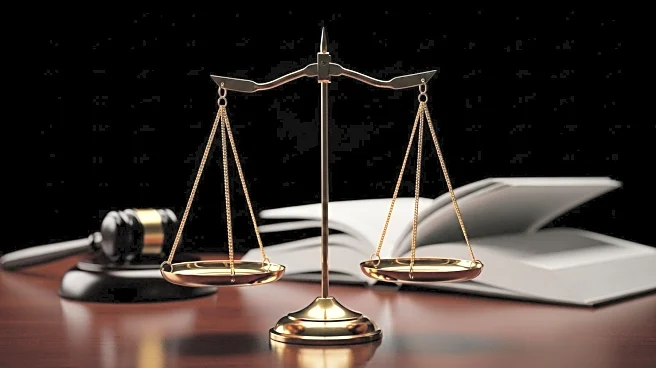What's Happening?
Supreme Court Justices Amy Coney Barrett and Sonia Sotomayor have publicly addressed the 22nd Amendment, which limits a president to two terms, in separate interviews. Justice Barrett, appointed by President Trump, confirmed in a Fox News interview that the amendment clearly restricts a president's tenure to two terms, referencing its ratification after Franklin D. Roosevelt's four terms. Justice Sotomayor, speaking on ABC's 'The View,' emphasized the Constitution as settled law, reinforcing the amendment's authority. These comments come amid President Trump's suggestions of a third term, highlighted by merchandise promoting 'Trump 2028.' The justices' remarks are notable due to their rarity in discussing legal interpretations publicly, especially as the Supreme Court handles cases related to Trump's executive power consolidation.
Why It's Important?
The statements from Justices Barrett and Sotomayor are significant as they address ongoing speculation about President Trump's potential third term, a topic that has stirred political debate. Their comments reinforce the constitutional limits on presidential terms, which could impact Trump's political ambitions and influence public discourse. The clarity provided by the justices may deter attempts to challenge the amendment, preserving the constitutional framework. This issue holds importance for U.S. political stability and the integrity of democratic processes, as it underscores the judiciary's role in upholding constitutional law against potential executive overreach.
What's Next?
While the justices have clarified the constitutional stance, the political implications of their statements may provoke reactions from various stakeholders. President Trump and his supporters might continue to challenge or reinterpret the amendment, potentially leading to legal disputes. The Supreme Court may face cases testing the limits of executive power, especially as Trump seeks to consolidate authority. Political leaders and civil society groups may engage in debates over constitutional amendments and presidential term limits, influencing future legislative or judicial actions.
Beyond the Headlines
The discussion around the 22nd Amendment and presidential term limits touches on broader themes of constitutional interpretation and judicial independence. The justices' willingness to speak publicly on this issue may reflect a growing need for transparency in judicial reasoning amid political pressures. This situation highlights the balance between legal principles and political dynamics, raising questions about the judiciary's role in safeguarding democratic norms. Long-term, this discourse could influence public trust in the Supreme Court and its ability to act as a check on executive power.











